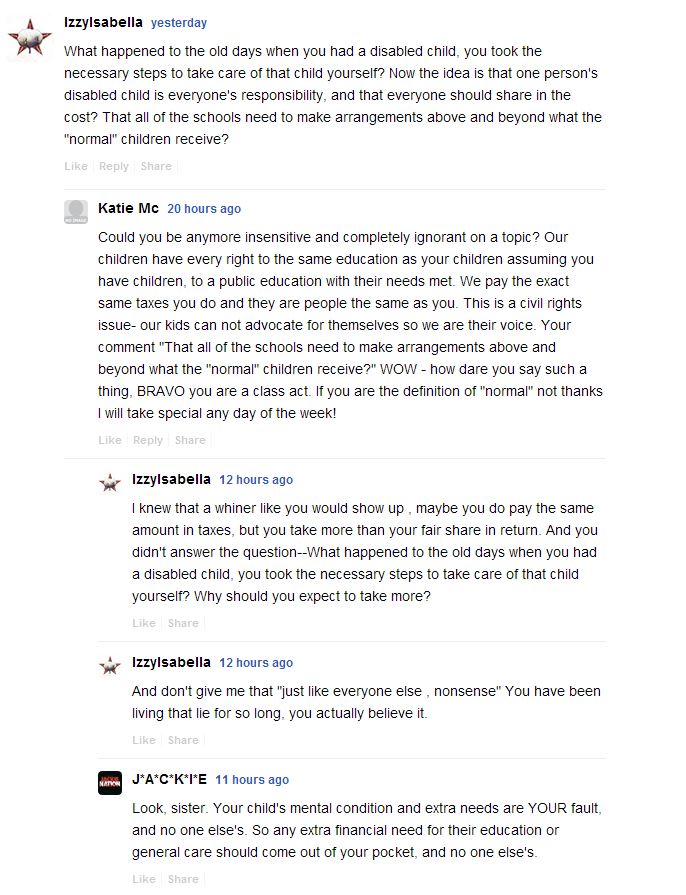Friday Freakout: Your Disabled Kid, Your Problem
This week the Mississippi Press posted a story entitled “Parents push for Mississippi special education vouchers.” The article, which is actually about an education savings account (ESA) bill, is straightforward, but be warned: Two commentators in the story’s sound-off section hit hard.

Some say fix the public schools, so they offer better special needs services. Ask any public teacher if they are trying their hardest to meet the needs of all of their students with disabilities. They are. The truth is some kids’ needs aren’t always met in their well-intentioned public school.
Commenters like the ones above would say, “Spend your own money to send your kid to a specialized school, then.” Think about that. Children with special needs are not born only to wealthy families. What other option does an impoverished parent have? Do they not deserve the same privilege as a rich parent to ensure a fruitful education for their child?
Plus, when the state commits to providing each child an education, that funding should become the property of that child—not a school. That’s how school choice works. And it does work.
Consider Nathan’s story.
“Nathan uses Arizona’s education savings accounts (ESA) to attend Lauren’s Institute for Education, a private school that specializes in helping students diagnosed with autism. Before using an ESA, Nathan could not speak and needed regular one-on-one attention, as he would get over-stimulated in noisy areas. Today, Nathan speaks in full sentences and enjoys the subjects of science and social studies. ‘It’s wonderful to finally be able to communicate with my son,’ said Nathan’s mom, Amanda. ‘I wouldn’t have been able to send him to Lauren’s Institute if it weren’t for the education savings account. It’s provided him the environment that he really needs to succeed.’”
Nathan’s story be had his parents not been able to access just a portion of his dedicated funding via the ESA? No one knows, but his outlook wasn’t as good as it is now. Today, Nathan can speak. He is learning content. His future mainstreaming in our society looks brighter from here.




